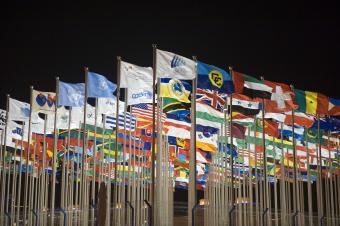International Cooperation
Recent Activity
This Council Statement from the sixth plenary meeting of the Transatlantic Council on Migration provides an overview of the Council’s discussions on how states can work together to move beyond the mantra of “global governance,” and begin taking concrete actions in pursuit of a shared agenda of safe, secure, legal, and orderly migration.
الأردنية ودعم اقتصاده. وابتدأت العَمالة غير العربية الآتية من آسيا بالزيادة في السنوات الأخيرة في الأردن، وبالأخص من سريلانكا والفِليبّين.
Migrants from the Philippines and Sri Lanka have taken on a growing role in filling labor shortages in Jordan, leading to significant challenges surrounding the recruitment of these foreign workers. Based on interviews with government officials in sending and receiving countries and focus groups with migrants, the report analyzes the role of private recruitment agencies and points to oversight gaps.
The EU-U.S. relationship is one of the most significant partnerships among wealthy nations. Interconnections between the two on migration issues make dialogue necessary and inevitable, as each relies on each other to attain a number of policy objectives, most clearly in the case of travel and border security.
The exponential growth of international travel since the 1960s has left border management systems worldwide struggling to keep up and has exposed weaknesses in states’ abilities to effectively manage their borders, especially regarding terrorist attacks, human trafficking, and illegal migration.
Migrant-sending and migrant-receiving countries rarely collaborate on migration issues because the structure of global migration systems ensures they often disagree about core policy issues. This report shows that migration collaboration makes sense when states share common goals they cannot achieve on their own.
Information and technology are centerpieces of a new border architecture that seeks to respond to the competing demands of facilitating mobility and managing cross-border risks while remaining cost-efficient and respectful of rights and privacy. This report shows how governments must approach border management systems to ensure properly balanced development.




